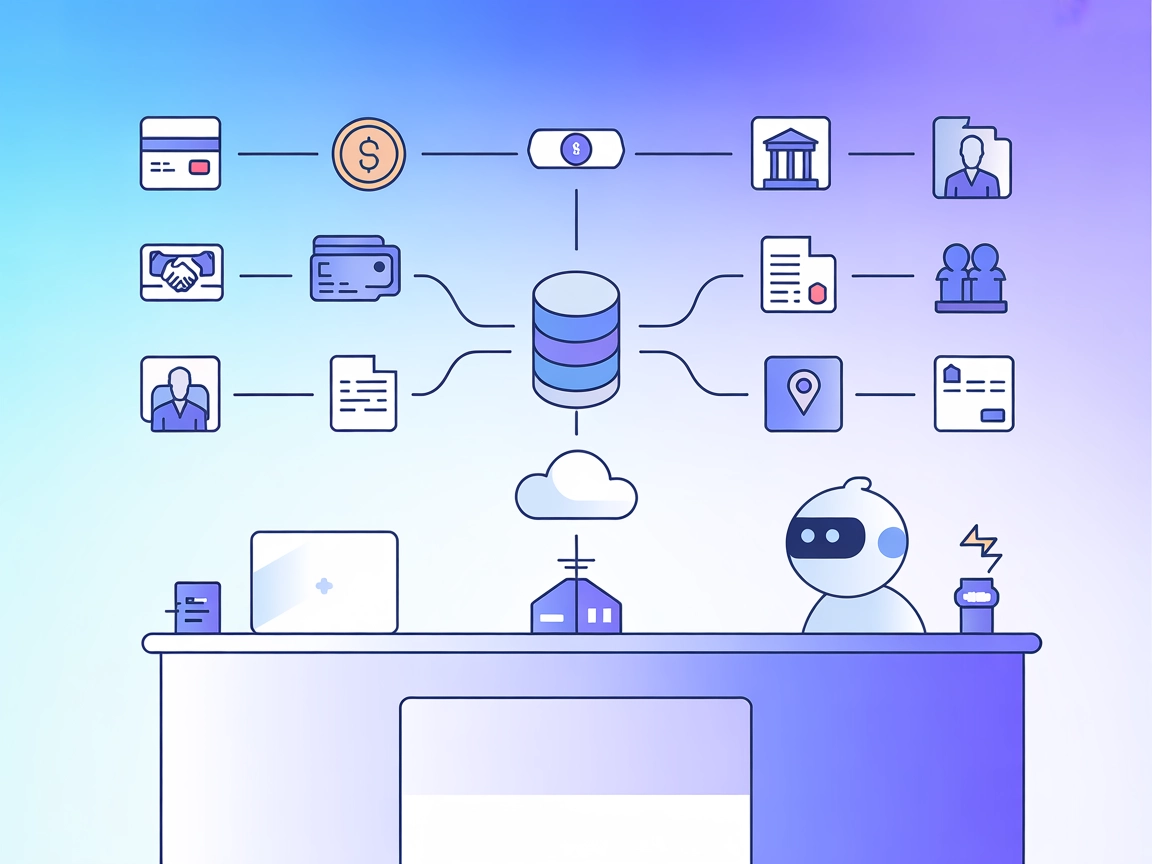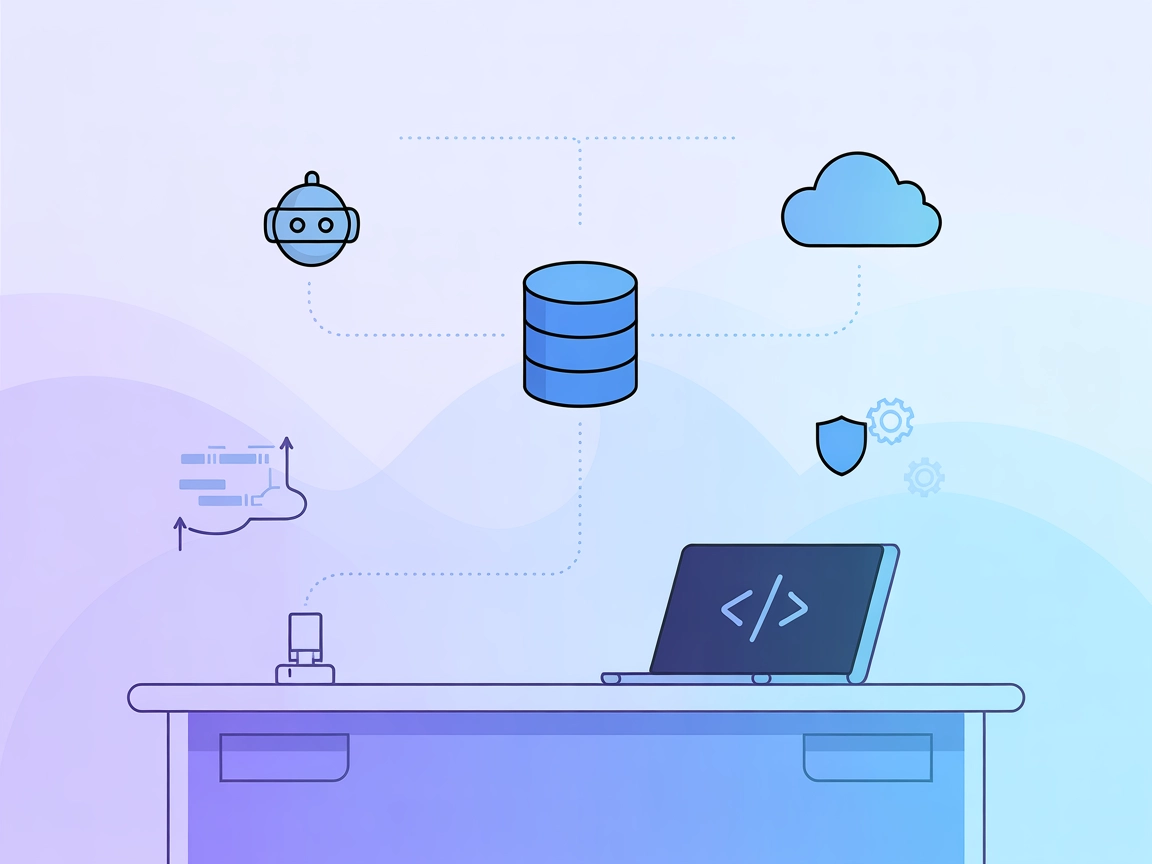Ramp MCP Server
Connect your AI agents to the Ramp financial platform for automated data analysis, reporting, and workflow integration—all via a robust, secure MCP server.

What does “Ramp” MCP Server do?
The Ramp MCP (Model Context Protocol) Server acts as a bridge between AI assistants and the Ramp financial data platform, enhancing workflows for developers and AI agents. It enables external access to Ramp’s Developer API, allowing the retrieval, analysis, and manipulation of financial data such as transactions, reimbursements, bills, and more. The server implements an ETL pipeline and uses an in-memory SQLite database for efficient data processing and analysis by large language models (LLMs). By exposing database operations, direct data fetching, and data loading tools, Ramp MCP empowers AI clients to perform custom queries, manage datasets, and automate financial-related tasks, all while abstracting API complexity and respecting token/input size limitations.
List of Prompts
No explicit prompt templates are mentioned in the repository or documentation.
List of Resources
No explicit MCP “resources” are listed in the documentation or code. However, the server provides access to Ramp data objects such as:
- Transactions
- Reimbursements
- Bills
- Locations
- Departments
- Bank Accounts
- Vendors
- Vendor Bank Accounts
- Entities
- Spend Limits
- Spend Programs
- Users
Database tools
- process_data: Sets up and processes data in an ephemeral in-memory database for analysis.
- execute_query: Executes SQL queries against the in-memory database.
- clear_table: Deletes data from tables in the in-memory database.
Fetch tools
- get_ramp_categories: Fetches category data from the Ramp API.
- get_currencies: Fetches supported currencies.
Load tools
- load_transactions: Loads transactions data (requires transactions:read scope).
- load_reimbursements: Loads reimbursements data (requires reimbursements:read scope).
- load_bills: Loads bills data (requires bills:read scope).
- load_locations: Loads location data (requires locations:read scope).
- load_departments: Loads department data (requires departments:read scope).
- load_bank_accounts: Loads bank account data (requires bank_accounts:read scope).
- load_vendors: Loads vendor data (requires vendors:read scope).
- load_vendor_bank_accounts: Loads vendor bank account data (requires vendors:read scope).
- load_entities: Loads entity data (requires entities:read scope).
- load_spend_limits: Loads spend limits (requires limits:read scope).
- load_spend_programs: Loads spend programs (requires spend_programs:read scope).
- load_users: Loads user data (requires users:read scope).
Use Cases of this MCP Server
- Automated Financial Data Analysis: Retrieve and process transaction, reimbursement, and bill data for analytics or reporting.
- Expense Management Automation: Query and manipulate data related to spend limits, departments, and users to streamline expense approvals and controls.
- Custom Workflow Integration: Integrate Ramp data with internal tools or dashboards using LLM-powered agents for tailored business insights.
- Vendor and Payment Tracking: Fetch and analyze vendor, bank account, and payment information for audit or reconciliation workflows.
- Audit and Compliance Automation: Use LLMs to surface anomalies or trends in Ramp’s datasets programmatically, reducing manual review workload.
How to set it up
Windsurf
No platform-specific instructions found for Windsurf.
Claude
- Clone the Ramp MCP repository to your local machine.
- Install
uvas the package manager. - Edit or create your
claude_desktop_config.jsonin the appropriate directory (typically/Library/Application Support/Claude/). - Add the following configuration for the Ramp MCP server:
{
"mcpServers": {
"ramp-mcp": {
"command": "uv",
"args": [
"--directory",
"/<ABSOLUTE-PATH-TO>/ramp-mcp",
"run",
"ramp-mcp",
"-s",
"transactions:read,reimbursements:read"
],
"env": {
"RAMP_CLIENT_ID": "<CLIENT_ID>",
"RAMP_CLIENT_SECRET": "<CLIENT_SECRET>",
"RAMP_ENV": "<demo|qa|prd>"
}
}
}
}
- Save the configuration and (re)start Claude Desktop to load the MCP server.
Securing API Keys:
Use environment variables as shown in the env section above to avoid hard-coding sensitive keys.
Cursor
No platform-specific instructions found for Cursor.
Cline
No platform-specific instructions found for Cline.
How to use this MCP inside flows
Using MCP in FlowHunt
To integrate MCP servers into your FlowHunt workflow, start by adding the MCP component to your flow and connecting it to your AI agent:

Click on the MCP component to open the configuration panel. In the system MCP configuration section, insert your MCP server details using this JSON format:
{
"ramp-mcp": {
"transport": "streamable_http",
"url": "https://yourmcpserver.example/pathtothemcp/url"
}
}
Once configured, the AI agent is now able to use this MCP as a tool with access to all its functions and capabilities. Remember to change “ramp-mcp” to the actual MCP server name and replace the URL with your own MCP server URL.
Overview
| Section | Availability | Details/Notes |
|---|---|---|
| Overview | ✅ | |
| List of Prompts | ⛔ | No prompt templates found |
| List of Resources | ⛔ | Data objects described as resources (see above) |
| List of Tools | ✅ | Database, fetch, and load tools described |
| Securing API Keys | ✅ | Uses environment variables in config |
| Sampling Support (less important in evaluation) | ⛔ | Not mentioned |
Roots support: Not mentioned
Sampling support: Not mentioned
Our opinion
Ramp MCP is a focused, well-scoped MCP server for financial data pipelines and automation. It offers a robust toolset for data loading, querying, and management, but lacks explicit prompt and resource definitions, as well as roots/sampling documentation. Setup and security practices are solid, but broader platform integration and advanced MCP features are not detailed.
Overall, this is a practical, reliable MCP server for Ramp API use cases, but not a reference implementation for the full MCP spec.
MCP Score
| Has a LICENSE | ✅ (MIT) |
|---|---|
| Has at least one tool | ✅ |
| Number of Forks | 7 |
| Number of Stars | 23 |
Frequently asked questions
- What is the Ramp MCP Server?
The Ramp MCP Server is a bridge between AI assistants and Ramp's financial platform, enabling secure retrieval, analysis, and automation of financial data such as transactions, reimbursements, bills, and more.
- What data and tools does Ramp MCP provide?
Ramp MCP offers tools for processing and querying financial data, including loading transactions, reimbursements, bills, users, and more, as well as running SQL queries and clearing tables via an in-memory SQLite database.
- How do I connect Ramp MCP to my AI agent in FlowHunt?
Add the MCP component to your flow, open its configuration, and include the MCP server details in the system MCP configuration using the specified JSON format. Replace the server name and URL with your own values.
- What are typical use cases for Ramp MCP?
Automated financial data analysis, expense management automation, custom workflow integration, vendor/payment tracking, and audit/compliance automation—all via AI-powered flows.
- How are API keys secured?
API credentials are managed via environment variables in the configuration, keeping sensitive information out of code and version control.
- Does Ramp MCP support prompt templates or advanced MCP features?
No explicit prompt templates or advanced MCP features like roots or sampling are documented; the focus is on robust financial data access and automation.
Automate Financial Workflows with Ramp MCP
Supercharge your AI automations and analytics by integrating the Ramp MCP Server with FlowHunt. Securely access, analyze, and automate your financial data—no manual API wrangling required.



